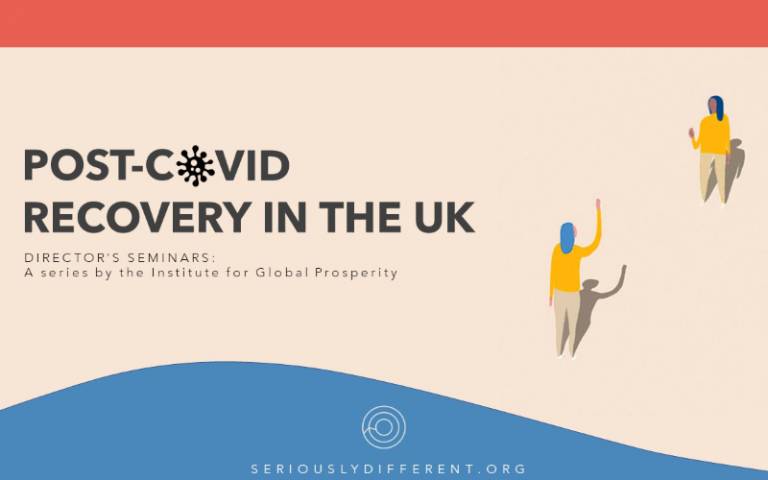Director's Seminar: what role for 'community' in the context of covid-19 recovery?
22 October 2020, 4:00 pm–6:00 pm

The IGP welcomes Dr Rochelle Burgess to give a Director's Seminar
Event Information
Open to
- All
Availability
- Yes
Organiser
-
Institute for Global Prosperity
Pitfalls and possibilities: what role for 'community' in the context of covid-19 recovery?
The public is not a homogenous entity - it is varied, complex and filled with people who are moving through individual experiences. As we live, these experiences connect each of us with a constellation of communities; women; communities of colour; professionals; academics & scientists; activists; mothers; sons; siblings; service users - the list is as long as a piece of string. The notion of 'community', though highly complex, is often heralded as the saving grace for many global public health challenges. This pandemic is no different. But what do we mean when we invoke the word? Is it an approach to the world that provides more challenges than answers? How do we capitalise on these ideas to imagine, and construct, a better world for us all? In this seminar I will reflect on how definitions of community within public health spaces (place, identity, and action) lead us to acknowledge challenges, and in some cases, imagine new solutions. Ultimately, I suggest that community often emerges as our only hope in relation to achieving both short and long-term change that is needed to build back from the current crisis.
The Speaker:
Dr Rochelle Burgess
Rochelle Burgess is a Lecturer in Global Health at the Institute for Global Health at UCL. For the past 10 years she has worked global health issues with an emphasis on community participation and qualitative methodologies. She is interested in the promotion of community approaches to health globally, and views communities as a route to studying the interface between health concerns and broader development issues such as poverty, power, systems of governance, and community mobilisation (civil society).
For more than a decade she has researched community mental health care systems and their capacity to respond to the needs of marginalised groups, including HIV/AIDS affected women living in poverty in South Africa (since 2007), and Black and Minority Ethnic groups in South West London (since 2013). She is currently co-PI of a study exploring the post-conflict mental health needs of internally displaced communities in Colombia with an emphasis on female ex-combatants and the afro-Caribbean community. She is also developing new projects on the mental health consequences of child marriage in the SADC region, alongside colleagues from the African Union.
More information to follow
 Close
Close

